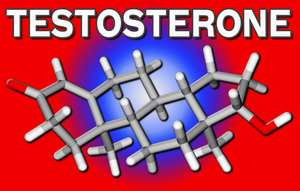Introduction to Tamoxifen and Its Importance in Cancer Therapy
Tamoxifen, a selective estrogen receptor modulator (SERM), has been a cornerstone in the treatment and prevention of hormone receptor-positive breast cancer. Traditionally associated with women's health, its significance in treating male breast cancer and other hormone-sensitive cancers in men is increasingly recognized. This article delves into the efficacy of tamoxifen in targeted cancer therapy specifically tailored for American males, exploring its mechanisms, benefits, and considerations in clinical practice.
Mechanism of Action: How Tamoxifen Works
Tamoxifen operates by binding to estrogen receptors, thereby inhibiting the proliferative effects of estrogen in breast tissue. In men, where estrogen levels are typically lower than in women, tamoxifen's role is crucial in managing cancers that are sensitive to estrogen. By blocking estrogen receptors, tamoxifen effectively slows or stops the growth of cancer cells that require estrogen to proliferate. This mechanism is vital for men diagnosed with breast cancer, as well as other hormone-sensitive cancers.
Clinical Efficacy of Tamoxifen in Male Cancer Patients
Studies have shown that tamoxifen can significantly improve outcomes in men with hormone receptor-positive breast cancer. A meta-analysis of clinical trials indicated that tamoxifen reduced the risk of recurrence and improved survival rates in male patients. Furthermore, its use has been extended to other conditions, such as prostate cancer, where it has shown promising results in managing disease progression, particularly in cases resistant to traditional androgen deprivation therapy.
Side Effects and Management Strategies
While tamoxifen is effective, it is not without side effects. Common issues reported by male patients include hot flashes, mood swings, and a potential increase in blood clot risk. To manage these side effects, healthcare providers often recommend lifestyle adjustments, such as regular exercise and a balanced diet, alongside medical interventions like blood thinners for those at higher risk of clots. It's essential for patients to have open discussions with their healthcare team to tailor management strategies that align with their individual health profiles.
Integrating Tamoxifen into Comprehensive Cancer Care
The integration of tamoxifen into a comprehensive cancer care plan for American males involves more than just prescribing the medication. It requires a multidisciplinary approach, including regular monitoring of hormone levels, imaging studies to track cancer progression, and psychological support to address the emotional toll of cancer treatment. Collaboration between oncologists, endocrinologists, and mental health professionals ensures that patients receive holistic care that addresses all aspects of their health and well-being.
Future Directions and Ongoing Research
The landscape of cancer treatment is ever-evolving, and research into tamoxifen's role in male cancer therapy continues to expand. Current studies are exploring the potential of tamoxifen in combination with other targeted therapies to enhance its efficacy and reduce side effects. Additionally, genetic profiling is being used to identify patients who may benefit most from tamoxifen, paving the way for more personalized treatment approaches.
Conclusion: The Vital Role of Tamoxifen in Men's Cancer Care
Tamoxifen remains a vital tool in the arsenal against hormone-sensitive cancers in American males. Its proven efficacy in improving survival rates and managing disease progression underscores the importance of continued research and personalized treatment strategies. As we advance our understanding of cancer biology and treatment, tamoxifen's role in men's health will undoubtedly continue to evolve, offering hope and improved outcomes for those affected by these challenging diseases.
Contact Us Today For A Free Consultation

- Tamoxifen's Role in Reducing Breast Cancer Recurrence in American Males [Last Updated On: February 22nd, 2025] [Originally Added On: February 22nd, 2025]
- Unveiling the Complexity of Tamoxifen Side Effects: A Professional Medical Review [Last Updated On: March 2nd, 2025] [Originally Added On: March 2nd, 2025]
- Exploring Tamoxifen: Mechanisms, Applications, and Considerations in Hormone Receptor-Positive Breast Cancer Treatment and Beyond [Last Updated On: March 3rd, 2025] [Originally Added On: March 3rd, 2025]
- Unveiling Tamoxifen: A Revolutionary Approach to Combat Breast Cancer in American Men [Last Updated On: March 4th, 2025] [Originally Added On: March 3rd, 2025]
- Exploring Long-Term Tamoxifen Use and Effects in American Males [Last Updated On: March 4th, 2025] [Originally Added On: March 4th, 2025]
- Exploring Tamoxifen's Role in Male Health: Therapy and Side Effects Management [Last Updated On: March 5th, 2025] [Originally Added On: March 5th, 2025]
- Exploring Tamoxifen's Role in Treating Hormone-Sensitive Cancers Among Adolescents [Last Updated On: March 6th, 2025] [Originally Added On: March 6th, 2025]
- Tamoxifen in Male Breast Cancer: Efficacy, Side Effects, and Future Directions [Last Updated On: March 7th, 2025] [Originally Added On: March 7th, 2025]
- Unveiling Tamoxifen Resistance in Male Breast Cancer: Mechanisms, Challenges, and Future Strategies [Last Updated On: March 8th, 2025] [Originally Added On: March 8th, 2025]
- Exploring Tamoxifen's Role Pre and Post-Surgery: Benefits, Safety, and New Applications [Last Updated On: March 9th, 2025] [Originally Added On: March 9th, 2025]
- Unveiling the Molecular Mechanisms of Tamoxifen in Treating Hormonal Cancers Among American Males [Last Updated On: March 11th, 2025] [Originally Added On: March 11th, 2025]
- Optimizing Tamoxifen Dosage for Effective Breast Cancer Treatment in American Males [Last Updated On: March 12th, 2025] [Originally Added On: March 12th, 2025]
- Tamoxifen's Potential in Pediatric Oncology: Hope for American Males [Last Updated On: March 13th, 2025] [Originally Added On: March 13th, 2025]
- Unveiling the Risks: A Comprehensive Look at Long-Term Tamoxifen Use in American Males [Last Updated On: March 15th, 2025] [Originally Added On: March 15th, 2025]
- Tamoxifen: Understanding Its Role in Male Breast Cancer Treatment and Prevention [Last Updated On: March 16th, 2025] [Originally Added On: March 16th, 2025]
- Tamoxifen Side Effects in American Males: Management and Coping Strategies [Last Updated On: March 17th, 2025] [Originally Added On: March 17th, 2025]
- Tamoxifen: Benefits and Side Effects for American Males in Breast Cancer Treatment [Last Updated On: March 18th, 2025] [Originally Added On: March 18th, 2025]
- Tamoxifen's Impact on Men's Health: Benefits, Risks, and Management Strategies [Last Updated On: March 19th, 2025] [Originally Added On: March 19th, 2025]
- Tamoxifen Interactions in American Males: Optimizing Breast Cancer Treatment [Last Updated On: March 19th, 2025] [Originally Added On: March 19th, 2025]
- Tamoxifen's Role in Reducing Breast Cancer Mortality in American Men [Last Updated On: March 19th, 2025] [Originally Added On: March 19th, 2025]
- Tamoxifen's Expanding Role in Men's Health: Breast Cancer, Prostate, and Infertility [Last Updated On: March 20th, 2025] [Originally Added On: March 20th, 2025]
- Tamoxifen's Role in Inhibiting Cancer Growth: Implications for American Males [Last Updated On: March 20th, 2025] [Originally Added On: March 20th, 2025]
- Tamoxifen in American Males: Benefits and Challenges in Recurrent Cancer Treatment [Last Updated On: March 21st, 2025] [Originally Added On: March 21st, 2025]
- Tamoxifen's Journey: From Contraceptive to Male Breast Cancer Treatment [Last Updated On: March 21st, 2025] [Originally Added On: March 21st, 2025]
- Tamoxifen's Role in Hormone Therapy for American Males: Benefits and Considerations [Last Updated On: March 21st, 2025] [Originally Added On: March 21st, 2025]
- Tamoxifen's Role in Treating and Preventing Male Breast Cancer: Insights and Advances [Last Updated On: March 22nd, 2025] [Originally Added On: March 22nd, 2025]
- Tamoxifen's Efficacy in Treating Male Breast Cancer: Clinical Insights and Future Directions [Last Updated On: March 22nd, 2025] [Originally Added On: March 22nd, 2025]
- Tamoxifen in American Males: Benefits, Risks, and Considerations for Breast Cancer Treatment [Last Updated On: March 22nd, 2025] [Originally Added On: March 22nd, 2025]
- Tamoxifen's Impact on Bone Health in American Males: Strategies for Prevention and Management [Last Updated On: March 23rd, 2025] [Originally Added On: March 23rd, 2025]
- Tamoxifen's Potential in Treating Rare Cancers: Insights and Implications for American Males [Last Updated On: March 23rd, 2025] [Originally Added On: March 23rd, 2025]
- Tamoxifen Drug Interactions in American Males: Clinical Management and Optimization [Last Updated On: March 23rd, 2025] [Originally Added On: March 23rd, 2025]
- Tamoxifen's Potential in Leukemia Treatment for American Males: Mechanisms and Clinical Insights [Last Updated On: March 23rd, 2025] [Originally Added On: March 23rd, 2025]
- Tamoxifen's Emerging Role in Treating Endocrine Cancers in American Males [Last Updated On: March 23rd, 2025] [Originally Added On: March 23rd, 2025]
- Tamoxifen's Role in Treating Male Breast Cancer: Benefits and Management [Last Updated On: March 24th, 2025] [Originally Added On: March 24th, 2025]
- Tamoxifen: Hope and Strategy for American Men with Breast Cancer [Last Updated On: March 24th, 2025] [Originally Added On: March 24th, 2025]
- Tamoxifen: A Vital Tool in Managing Men's Health Challenges [Last Updated On: March 24th, 2025] [Originally Added On: March 24th, 2025]
- Tamoxifen's Role in Treating and Preventing Male Breast Cancer: A Comprehensive Guide [Last Updated On: March 24th, 2025] [Originally Added On: March 24th, 2025]
- Tamoxifen: A Key Treatment for Breast Cancer in American Males [Last Updated On: March 25th, 2025] [Originally Added On: March 25th, 2025]
- Exploring Tamoxifen Alternatives for Male Breast Cancer Treatment in American Males [Last Updated On: March 25th, 2025] [Originally Added On: March 25th, 2025]
- Tamoxifen's Dual Impact on Ovarian Function: Fertility and Menopause Considerations [Last Updated On: March 25th, 2025] [Originally Added On: March 25th, 2025]
- Tamoxifen's Role in Treating Gynecomastia: Efficacy and Considerations for American Males [Last Updated On: March 25th, 2025] [Originally Added On: March 25th, 2025]
- Tamoxifen's Role in Male Breast Cancer: Efficacy, Myths, and Adherence in the US [Last Updated On: March 25th, 2025] [Originally Added On: March 25th, 2025]
- Tamoxifen: From Fertility Drug to Cancer Treatment in American Males [Last Updated On: March 26th, 2025] [Originally Added On: March 26th, 2025]
- Tamoxifen in Male Cancer Care: Benefits, Risks, and Future Directions [Last Updated On: March 26th, 2025] [Originally Added On: March 26th, 2025]
- Personalized Tamoxifen Therapy Enhances Breast Cancer Treatment for American Men [Last Updated On: March 26th, 2025] [Originally Added On: March 26th, 2025]
- Tamoxifen: Essential Facts and Benefits for American Males with Breast Cancer [Last Updated On: March 26th, 2025] [Originally Added On: March 26th, 2025]
- Tamoxifen: Revolutionizing Hormone Therapy for Male Breast Cancer in America [Last Updated On: March 26th, 2025] [Originally Added On: March 26th, 2025]
- Tamoxifen in American Men: Benefits, Risks, and Long-Term Health Implications [Last Updated On: March 26th, 2025] [Originally Added On: March 26th, 2025]
- Tamoxifen's Role in Treating Male Breast Cancer: Molecular Insights for American Men [Last Updated On: March 26th, 2025] [Originally Added On: March 26th, 2025]
- Tamoxifen Therapy for Advanced Hormone-Sensitive Cancers in American Males: Benefits and Risks [Last Updated On: March 26th, 2025] [Originally Added On: March 26th, 2025]
- Tamoxifen Therapy: A Preventive Approach to Breast Cancer in High-Risk Men [Last Updated On: March 27th, 2025] [Originally Added On: March 27th, 2025]
- Strategies to Overcome Tamoxifen Resistance in American Males with Breast Cancer [Last Updated On: March 27th, 2025] [Originally Added On: March 27th, 2025]
- Tamoxifen: A Key Treatment for Advanced Breast Cancer in American Men [Last Updated On: March 27th, 2025] [Originally Added On: March 27th, 2025]
- Tamoxifen Use and Cataract Risk in American Males: A Comprehensive Analysis [Last Updated On: March 27th, 2025] [Originally Added On: March 27th, 2025]
- Tamoxifen's Molecular Dynamics and Therapeutic Benefits for American Males [Last Updated On: March 27th, 2025] [Originally Added On: March 27th, 2025]
- Tamoxifen's Role in Transforming Male Breast Cancer Treatment in America [Last Updated On: March 27th, 2025] [Originally Added On: March 27th, 2025]
- Tamoxifen's Role in Managing Estrogen Fluctuations in American Males: Benefits and Considerations [Last Updated On: March 27th, 2025] [Originally Added On: March 27th, 2025]
- Tamoxifen Use and Depression in American Men: A Critical Oncology Concern [Last Updated On: March 28th, 2025] [Originally Added On: March 28th, 2025]
- Tamoxifen: Gold Standard in Male Breast Cancer Treatment and Its Long-Term Benefits [Last Updated On: March 28th, 2025] [Originally Added On: March 28th, 2025]
- Tamoxifen in Early-Stage Breast Cancer Treatment for American Males: Overview and Management [Last Updated On: March 28th, 2025] [Originally Added On: March 28th, 2025]
- Genomic Predictors of Tamoxifen Response in American Males with Breast Cancer [Last Updated On: March 28th, 2025] [Originally Added On: March 28th, 2025]
- Tamoxifen's Role in Treating Male Breast Cancer: Efficacy and Considerations for American Men [Last Updated On: March 29th, 2025] [Originally Added On: March 29th, 2025]
- Tamoxifen's Potential in Treating Advanced Hormonal Cancers in American Males [Last Updated On: March 29th, 2025] [Originally Added On: March 29th, 2025]
- Tamoxifen Toxicity in American Males: Mechanisms, Risks, and Management Strategies [Last Updated On: March 31st, 2025] [Originally Added On: March 31st, 2025]
- Tamoxifen's Endocrine Effects on American Male Breast Cancer Patients: Insights and Management [Last Updated On: April 1st, 2025] [Originally Added On: April 1st, 2025]
- Tamoxifen: A New Hope for Male Fertility in American Men [Last Updated On: April 1st, 2025] [Originally Added On: April 1st, 2025]
- Tamoxifen Therapy in American Males: Molecular Determinants and Personalized Treatment Strategies [Last Updated On: April 1st, 2025] [Originally Added On: April 1st, 2025]
- Tamoxifen: A Vital Tool in Treating and Preventing Male Breast Cancer [Last Updated On: April 3rd, 2025] [Originally Added On: April 3rd, 2025]
- Enhancing Tamoxifen Efficacy in American Males with Breast Cancer Using Adjunct Therapies [Last Updated On: April 5th, 2025] [Originally Added On: April 5th, 2025]
- Tamoxifen: A Vital Tool in Preventing Breast Cancer in American Men [Last Updated On: April 6th, 2025] [Originally Added On: April 6th, 2025]
- Tamoxifen's Cardiovascular Impact on American Males: Benefits, Risks, and Management [Last Updated On: April 8th, 2025] [Originally Added On: April 8th, 2025]
- Tamoxifen Therapy: A Key Treatment for Male Breast Cancer in the US [Last Updated On: April 9th, 2025] [Originally Added On: April 9th, 2025]
- Tamoxifen in American Males: Breast Cancer Benefits vs. Endometrial Cancer Risks [Last Updated On: April 9th, 2025] [Originally Added On: April 9th, 2025]
- Tamoxifen's Role in Treating Breast Cancer in American Males: Mechanisms and Impacts [Last Updated On: April 9th, 2025] [Originally Added On: April 9th, 2025]
- Tamoxifen: A Vital Treatment for Breast Cancer in American Men [Last Updated On: April 9th, 2025] [Originally Added On: April 9th, 2025]
- Tamoxifen's Efficacy in Treating Advanced Breast Cancer in American Males: Case Studies [Last Updated On: April 10th, 2025] [Originally Added On: April 10th, 2025]
- Tamoxifen's Role in Chemoprevention for American Males: Breast Cancer Risk Reduction [Last Updated On: April 10th, 2025] [Originally Added On: April 10th, 2025]
- Tamoxifen in Men: Breast Cancer Treatment, Side Effects, and Holistic Health Management [Last Updated On: April 13th, 2025] [Originally Added On: April 13th, 2025]
- Tamoxifen's Role in Preventing Cancer in American Men: A Comprehensive Overview [Last Updated On: April 13th, 2025] [Originally Added On: April 13th, 2025]
- Tamoxifen's Expanding Role in Men's Health: Beyond Breast Cancer Treatment [Last Updated On: April 14th, 2025] [Originally Added On: April 14th, 2025]
Word Count: 546





















